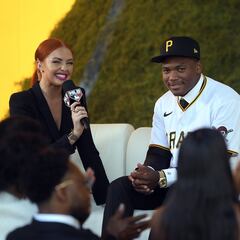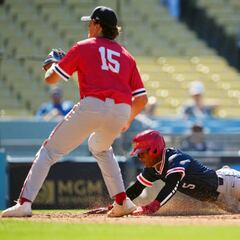How are MLB signing bonuses paid?
With four of the top ten draft picks coming directly out of high school, the signing bonus is the best guarantee that they have against future misfortune


With four of the top ten draft picks coming directly out of high school, the signing bonus is the best guarantee that they have against any future misfortune. Of course, any player can rip their shoulder or blow out their knee, have progressively worse eyesight or an undiagnosed heart defect. Any of these things, and much more, can happen to anyone at any time, but the players coming out of college will have a degree to help them transition into the regular, non-baseball work force. That is the theory at least.
With players drafted directly from high school, however, if any of this happens, or indeed if they simply can’t make the transition to the next level, they will find themselves out of baseball with no fallback.
Apart from their signing bonus.
Welcome to Birdland, @J_Holliday7!
— Orioles on MASN (@masnOrioles) July 17, 2022
The Orioles select SS Jackson Holliday with the No. 1 overall pick! pic.twitter.com/wVJW3jYnkc
The concept is that the signing bonus was a way to make sure that the player has something upfront, an insurance policy if you will, against his career unexpectedly washing out. Billy Beane quite famously was given $125,000 to forego Stanford. That is pretty close to half a million dollars in today’s economy. Some bad real estate investments reportedly blew it all away and when his playing career was over, he transitioned to the front office. And while that worked out for Beane, not every player is so lucky.
In recent years, signing bonuses have been used by clubs as a way to keep their salary costs artificially low. With a larger bonus being paid out, a player will be willing to keep his salary expectations at a much more cap-friendly number.
And the unpalatable truth is that much of these massive salaries are never paid out by teams to the players who sign. There are no more direct-to-majors contracts and all draft picks will have to sign a minor league contract. If they do not progress to the Show, where all contracts are 100% guaranteed, or they are deemed to have been a bad business deal, they will be released and cut with the player finding out too late that very little of that minor league contract was guaranteed money.
With the 2nd overall pick in the 2022 #MLBDraft, the @Dbacks select OF Druw Jones, the son of Braves legend Andruw. pic.twitter.com/UZkCqmm0Nj
— MLB (@MLB) July 17, 2022
Both Jackson Holliday and Druw Jones are expected to have signing bonuses in the $8 million plus range, with Holliday nudging closer to nine. As far as insurance policies go, this is a pretty sweet one for an 18-year-old.
It will be crucial that these young men have financial experts on their team working to secure their bonus before they sign anything, since the bonus can be structured in any number of ways and contain language that makes it forfeit if they miss certain in-season targets.
Related stories
Assuming that they have have a good team around them, and let’s be frank, with both of their fathers being former MLB players, this won’t be their first rodeo, then they will make sure that whatever contract they sign will contain the following two clauses as a minimum:
- the signing bonus is not conditional on them playing any games at all for the team
- the signing is not refundable
Jackson Holliday and Druw Jones made history tonight 🙌 pic.twitter.com/Tjsfq5q0VC
— B/R Walk-Off (@BRWalkoff) July 18, 2022
After that, they can structure payments the best way that they can to suit their tax situation. Lump sum, doled out in yearly instalments, interest compounded, whatever. As long as they get their bonus, then they will have done well. And that is the least that the teams owe these young men.

